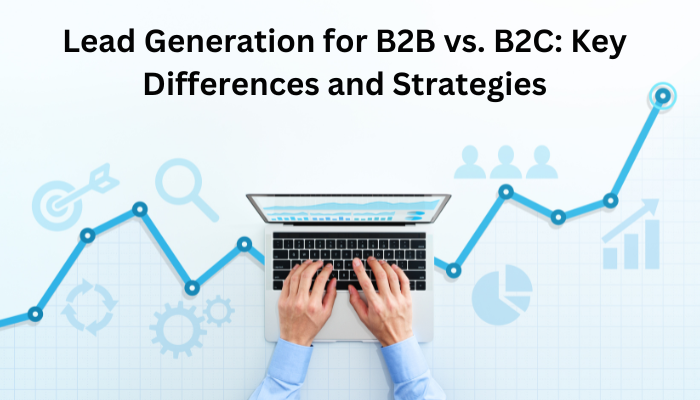
Lead Generation for B2B vs. B2C: Key Differences and Strategies
January 10, 2024 Comment off
Lead generation, the lifeblood of business growth, varies significantly between B2B (Business to Business) and B2C (Business to Consumer) sectors. Understanding these differences is crucial for developing effective marketing strategies tailored to each audience. In this article, we explore the unique aspects of B2B and B2C lead generation, highlighting key strategies to maximize success in both arenas.
Understanding the Landscape:
B2B lead generation focuses on building relationships and nurturing leads for long-term business contracts, often involving higher-value transactions and longer sales cycles. In contrast, B2C lead generation targets individual consumers, emphasizing quick conversions and emotional decision-making.
Key Differences in Lead Generation:
- Target Audience:
- B2B: Targets other businesses, decision-makers, or influencers within an organization.
- B2C: Focuses on individual consumers with varying interests and needs.
- Sales Cycle Length:
- B2B: Longer sales cycles due to multiple stakeholders and complex decision-making processes.
- B2C: Shorter sales cycles aimed at quick purchase decisions.
- Content and Messaging:
- B2B: Content is more informational and professional, addressing business needs and ROI.
- B2C: Engaging and emotional content that resonates with personal interests and lifestyles.
- Channels of Communication:
- B2B: Professional networks like LinkedIn, industry forums, and email marketing.
- B2C: Social media platforms, influencer collaborations, and online advertising.
- Lead Nurturing:
- B2B: In-depth nurturing strategies involving educational content, webinars, and personalized follow-ups.
- B2C: Faster, more direct nurturing tactics, often leveraging promotions and special offers.
Strategies for Effective B2B Lead Generation:
- Leverage LinkedIn for Networking: Utilize LinkedIn for connecting with industry professionals and sharing insightful content.
- Develop In-Depth Content: Create whitepapers, case studies, and e-books that address specific industry challenges.
- Host Webinars and Online Events: Offer valuable insights through webinars, enhancing brand authority and engagement.
- Implement Account-Based Marketing (ABM): Tailor marketing efforts to specific high-value accounts for personalized engagement.
Strategies for Successful B2C Lead Generation:
- Engage on Social Media Platforms: Use platforms like Instagram and Facebook for interactive and visually appealing content.
- Influencer Partnerships: Collaborate with influencers to tap into their follower base and gain credibility.
- Email Marketing with Personalization: Send personalized emails with offers and product recommendations.
- Utilize Pay-Per-Click (PPC) Advertising: Invest in PPC campaigns on Google and social media for immediate visibility.
The Future of Lead Generation:
Advancements in AI and machine learning are set to revolutionize lead generation in both B2B and B2C sectors. Predictive analytics, personalized content creation, and automated lead nurturing are areas where technology will play a significant role, offering more targeted and efficient lead generation strategies.
While B2B and B2C lead generation share the common goal of driving business growth, their approaches must be distinct to resonate with their respective audiences. By understanding these differences and implementing targeted strategies, businesses can effectively generate leads and foster sustainable growth. As the digital landscape continues to evolve, staying adaptable and informed will be key to lead generation success.